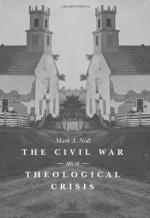|
This section contains 2,224 words (approx. 8 pages at 300 words per page) |

|
After the Golden Age
. Observers of American law during 1850-1877 frequently remarked on the passing of a heroic era of legal creativity. By 1860 nobody in the country associated with the law enjoyed the stature that had been shared by a dozen figures a generation earlier. Gone were the Olympian jurists such as John Marshall, Joseph Story, James Kent, Lemuel Shaw, John Bannister Gibson, and Thomas Ruffin. No longer did any lawyer grip the public imagination as Daniel Webster, William Wirt, and Rufus Choate once did. Few people continued to discuss the penitentiary movement that had brought Alexis de Tocqueville to the United States on a tour of inspection in 1831-1832, during which he concluded that "it is at the bar or the bench that the American aristocracy is found." The sectional convulsions over the Constitution notwithstanding, the third quarter of the nineteenth century seemed lackluster in comparison as...|
This section contains 2,224 words (approx. 8 pages at 300 words per page) |

|



